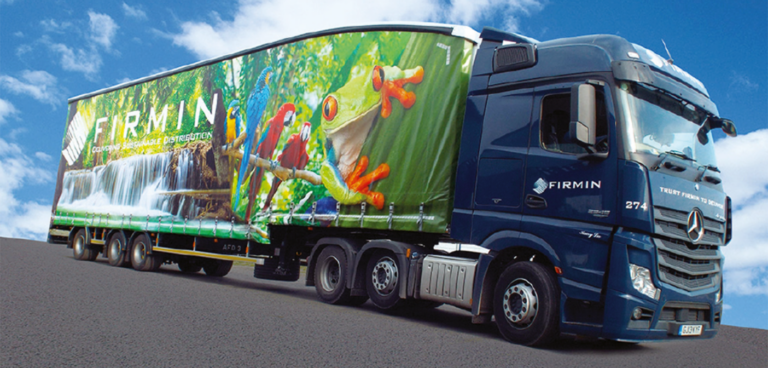Today [10 May 2023], the UK government announced new legislation to introduce longer lorries, known as longer semi-trailers (LSTs), across Britain’s roads as part of its strategy to grow the economy, cut road emissions and support supply chains, despite concerns about the safety of the vehicles.
LSTs can be up to 2.05 metres longer than a standard semi-trailer and can be towed by a lorry. According to the government, LSTs are able to transport a range of goods but can move the same volumes as typical lorries in eight percent fewer journeys.
The legislation will be laid before Parliament today to support the deployment of vehicles on roads from 31 May.
The government has also argued that its previous 11-year trial of LSTs showed the potential of the vehicles to save 70,000 tonnes of carbon dioxide emissions and that LSTs were involved in around 61% fewer personal injury collisions than conventional lorries.
However, road safety campaigners have cited the extended length of the lorries as a concern for other road users, due to the extended length creating a larger tail swing and increased size of vehicle blind spots.
Speaking against the decision, Keir Gallagher, campaigns manager at Cycling UK, said: “At a time when funding for infrastructure to keep people cycling and walking safer has been cut, it’s alarming that longer and more hazardous lorries could now be allowed to share the road with people cycling and walking.
“Before opening the floodgates to longer lorries rolling into our busy town centres and narrow rural lanes, further testing in real-life scenarios should have been done to assess and address the risks.”
Estimates provided in an official statement suggest this could generate £1.4bn in economic growth and remove one standard-size trailer off the road for every 12 trips made.
Richard Holden, roads minister, said: “Everyone around the country depends on our haulage sector for their everyday needs – from loo rolls to sausage rolls – and a strong, resilient supply chain is key to the government’s priority to grow the economy.
“These new longer lorries will make a big difference for British businesses like Greggs, who will see 15% more baked goods delivered, from tasty pastries to the nation’s much-loved sausage rolls.
“It’s fantastic to see this change for our supply chain come into law, resulting in a near £1.4bn boost to the haulage industry and driving economic growth. Let the good times roll as we reduce congestion, lower emissions and enhance the safety of British roads.”
The government has said the same 44-tonne weight limit for standard trailers will remain in place for vehicles using LSTs. Another benefit the government cited in its statement was reduced wear on roads compared to conventional lorries due to the type of steering axle used in LSTs.
Operators will be legally required to ensure appropriate route plans and risk assessments are made to take the specifications of LSTs into account, as well as additional safety checks.
More than 300 companies in the UK participated in the previous LST trial, and almost 3,000 are currently deployed on British roads. Some of the project participants include Argos, Greggs, Morrisons and Royal Mail.
The move forms part of the government’s broader set of 33 actions to address the shortage of HGV drivers and boost recruitment and retention in logistics, which includes £52.5m to improve roadside facilities for lorry drivers and making 11,000 HGV driver training places available through skills bootcamps.





